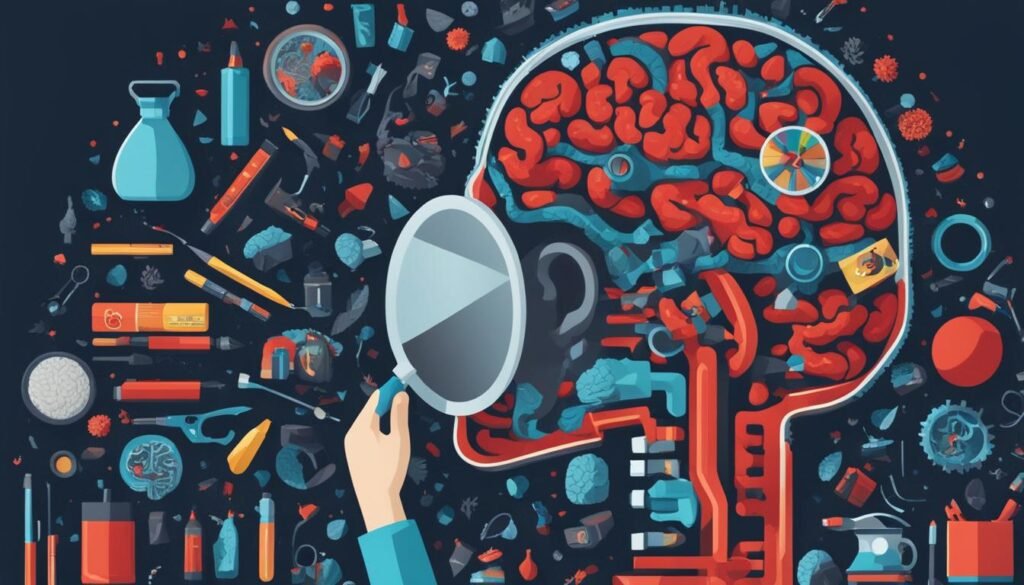Predictably Irrational by Dan Ariely: Exploring the Fascinating World of Behavioral Economics, Irrationality, Decision Making and Consumer Behavior
December 13, 2023 | by businessbooksmarts.com

Welcome to our article on “Predictably Irrational” by Dan Ariely, one of the most fascinating books on the subject of Behavioral Economics. In this section, we will delve into the world of Behavioral Economics, Irrationality, Decision Making, Ariely Books, Consumer Behavior, and Economic Psychology. Together, we will explore how our behavior influences economic decisions and how we can leverage this knowledge for better decision making.
Dan Ariely, a renowned professor of psychology and behavioral economics, explores the irrationality of human decision making in his book “Predictably Irrational.” In it, he uncovers the hidden forces that shape our behavior and influence our choices. Through his research, Dan Ariely urges us to reevaluate how we approach decision making, particularly in the world of economics and consumer behavior.
Key Takeaways:
- Behavioral Economics is the study of how our behavior influences economic decisions.
- Irrationality plays an important role in our decision making and can be understood within the framework of Behavioral Economics.
- Consumer behavior is influenced by various factors, including emotions, biases, and heuristics.
- Economic Psychology studies how psychological factors impact economic decision making.
- Dan Ariely’s research has significantly contributed to our understanding of human behavior and its implications for various domains.
Understanding Behavioral Economics
Behavioral Economics is a fascinating field that combines insights from psychology, sociology, and economics to understand how people make decisions. It recognizes that we are not always rational decision-makers, and takes into account the various psychological biases and heuristics that influence our choices.
One of the key principles of Behavioral Economics is that our decisions are influenced by context and the way information is presented to us. For example, we may be more likely to choose an option that is presented as the default, or we may be swayed by how a question is framed.
Another important concept in Behavioral Economics is the idea of loss aversion – the tendency to prefer avoiding losses over acquiring gains. This can lead us to make irrational decisions, such as holding onto losing investments or avoiding necessary risks.
When it comes to consumer behavior, Behavioral Economics helps us understand why people make certain purchasing decisions. For example, people may be more likely to buy a product if it is associated with a positive emotion or if it is endorsed by someone they trust.
Overall, understanding Behavioral Economics is crucial for anyone interested in decision-making and consumer behavior. By recognizing our inherent irrationality and the factors that influence our decisions, we can make better choices and lead more fulfilling lives.
“Behavioral Economics is about understanding the psychological and social factors that influence people’s economic decisions and how to apply that understanding in a practical context.” – David Halpern
The Role of Irrationality
In the field of Behavioral Economics, one of the key concepts that researchers have explored is irrationality. Despite our rational aspirations, our decisions and actions are often influenced by unconscious biases and emotions.
According to Dan Ariely, author of Predictably Irrational, irrationality is a fundamental aspect of human behavior. He argues that our irrational tendencies can be understood within the framework of Behavioral Economics, providing valuable insights into our decision-making processes.
The Impact of Irrationality on Decision Making
Research has shown that irrationality can have a significant impact on decision making. For instance, studies have found that people are more likely to make impulsive purchases when they are emotional, such as when they are feeling sad or stressed.
Additionally, irrational biases such as the endowment effect can influence how we value certain items. This bias describes the tendency for people to overvalue items that they already possess, simply because they own them. This can lead to irrational decisions, such as holding onto a stock that is declining in value because we don’t want to sell it for less than what we paid for it.
The Role of Behavioral Economics
Understanding irrationality is a critical component of Behavioral Economics. By recognizing the ways in which our behavior can deviate from rational expectations, researchers can gain insights into how to improve decision making. For instance, nudges can be used to subtly shift our behavior in a more positive direction, such as by placing healthier foods at eye level in a grocery store.
Overall, understanding the role of irrationality in decision making is a crucial aspect of Behavioral Economics. As Dan Ariely notes, our decision making is predictably irrational, and by exploring the underlying factors that influence our choices, we can gain a better understanding of economic behavior and how to improve it.
Dan Ariely’s Insights
In his book “Predictably Irrational,” Dan Ariely conducted several experiments to understand human behavior and decision making. His research has provided valuable insights into the world of Behavioral Economics, helping businesses and individuals make better decisions.
Ariely found that our decisions are often influenced by factors beyond rational thinking. For instance, we tend to make irrational decisions based on our emotions, biases, and heuristics. This means that our decisions may not always align with our goals or best interests.
One of the key findings of Ariely’s research is that we tend to anchor our decisions based on the first piece of information we receive. This means that the initial information we receive heavily influences our subsequent decisions. For example, if a product is priced higher initially, we are more likely to buy it even if the price is later reduced.
Ariely’s research has also shed light on the concept of “opportunity cost.” We tend to make irrational decisions by not considering the opportunity cost of our choices. This means that we don’t always evaluate the alternatives and their potential benefits before making a decision.
“We are not just Homo economicus, but we are Homo meaning-making. We want to make sense of the world, even if that means seeing patterns that don’t exist.”
Ariely’s experiments have also shown that we tend to prefer choices that offer us more options, even if those options are irrelevant. For instance, if a menu has more options, we are more likely to choose from it than a menu with fewer options. This is known as the “paradox of choice.”
Overall, Dan Ariely’s research has greatly contributed to our understanding of human behavior and its implications for decision making. His insights have helped businesses and individuals make better choices and navigate the complex world of Behavioral Economics.

The Influence of Consumer Behavior
Understanding consumer behavior is crucial to making informed decisions in the business world. Consumers are the driving force behind the economy, and their behavior can have a significant impact on market trends. Consumer behavior refers to the actions and decisions made by individuals when purchasing goods or services.
Behavioral Economics plays a vital role in understanding consumer behavior. By examining the irrationalities and biases that influence our decisions, we can gain insights into the motivations and drivers behind consumer actions.
Marketers use this knowledge to create effective advertising campaigns that influence consumer behavior. For example, understanding the power of social proof and the influence of peer opinions can help businesses create effective marketing messages. Moreover, the concept of loss aversion can also be utilized to encourage consumers to act swiftly and make purchases before a product is no longer available.
Decision making processes are influenced by various factors, such as emotions, values, and attitudes. Consumers may make irrational decisions based on these factors, which can lead to biased decision making. Behavioral Economics studies these irrational decisions and seeks to understand how they impact the overall decision making process.
“The study of consumer behavior is an integral part of understanding the market and developing effective marketing strategies.”
Moreover, understanding consumer behavior is also crucial for businesses when developing new products or services. By understanding the needs and wants of consumers, businesses can create products that meet demand and deliver value.
Overall, Behavioral Economics plays a crucial role in deciphering consumer behavior and understanding the factors that influence decision making. Businesses can leverage this knowledge to create effective marketing campaigns and develop products that meet the needs of their target consumers.
Exploring Economic Psychology
Economic Psychology is a fascinating intersection between psychology and economics, and it plays a crucial role in decision making. It refers to the study of human behavior and how it affects economic choices and outcomes. This field of study has gained considerable attention in recent years due to its relevance in various domains, including consumer behavior, marketing, and public policy.
In the context of Behavioral Economics, Economic Psychology is particularly significant as it allows us to understand the psychological factors that influence our economic decisions. As we have explored earlier, our decisions are not always rational, and we are often influenced by biases, heuristics, and emotions.
One aspect of Economic Psychology that is particularly relevant to Behavioral Economics is the concept of cognitive biases. These are errors in our thinking that can influence our judgments and decision making. For example, confirmation bias is the tendency to seek information that confirms our existing beliefs, while ignoring information that contradicts them. Similarly, anchoring bias refers to the tendency to rely too heavily on the first piece of information we receive when making a decision.
By understanding these biases and other psychological factors, we can design effective interventions and policies that can nudge people towards making better decisions. For example, a nudge towards healthier food choices can be achieved by placing healthier options at eye-level and making them more visually appealing, while placing less healthy options out of sight.
“The findings of Economic Psychology have important implications for businesses, governments, and individuals who seek to influence behavior and decision making.”
Furthermore, the insights gained from Economic Psychology can be used to develop targeted marketing strategies that appeal to consumers’ emotions and preferences. By understanding the underlying psychological factors that drive consumer behavior, businesses can create more effective marketing campaigns that resonate with their target audience.
In conclusion, Economic Psychology is a vital field of study that sheds light on the psychological factors that influence our economic decisions. By integrating insights from Economic Psychology into Behavioral Economics, we can gain a deeper understanding of human behavior and develop interventions and policies that promote better decision making. The findings of Economic Psychology have important implications for businesses, governments, and individuals who seek to influence behavior and decision making.
The Significant Contribution of Dan Ariely to Behavioral Economics
Dan Ariely, a renowned Professor of Psychology and Behavioral Economics, has made a tremendous contribution to the field of Behavioral Economics through his book “Predictably Irrational.” His research and experiments have shed light on the irrational behavior of humans and the impact it has on economic decision making.
Ariely’s work has helped us understand that our decisions are not always rational and that we are often influenced by factors beyond our control. He has shown that our biases, emotions, and heuristics play a significant role in shaping our behavior and decision making.
“We are not as rational as we think we are, and we are not as irrational as we might appear.”
Ariely’s groundbreaking experiments have challenged the traditional economic theory of rational decision making and offered a new perspective on how humans make choices. His research has shown that many of our decisions are influenced by our environment, our emotions, and the context in which we make them. For example, Ariely demonstrated that the presence of a decoy option can influence our choices, even if we are aware that the decoy is a bait.
Ariely’s work has significant implications for various domains, including business, public policy, and personal finance. His insights have helped us understand consumer behavior and how businesses can leverage this knowledge to influence purchasing decisions. His research has also highlighted the importance of transparency and fairness in decision making, urging policymakers to adopt a more humane approach to public policy.

Ariely’s book “Predictably Irrational” has been a bestseller and has earned him international acclaim. His contributions to the field of Behavioral Economics have been recognized by numerous awards and honors, including the World Technology Network Award and the Ig Nobel Prize.
Dan Ariely’s work has opened up new avenues for research in the field of Behavioral Economics and has inspired a new generation of researchers and practitioners. His legacy will continue to influence our understanding of human behavior and its implications for various domains for years to come.
Applying Behavioral Economics
Behavioral Economics has practical applications in various domains, including business, government, and personal life. By understanding the underlying principles of decision making and consumer behavior, we can make better choices.
Business
Businesses can leverage Behavioral Economics to influence consumer behavior and make better strategic decisions. For example, a company can use the principle of loss aversion to create urgency in their marketing campaigns. By highlighting the potential losses a customer might incur if they don’t act, companies can nudge customers to take action.
“Behavioral economics is a valuable tool for businesses to understand the psychology behind consumer decision making and to use this knowledge to design effective marketing strategies.”
Government
Governments can also use Behavioral Economics to improve public policies and make better decisions. For instance, by understanding the factors that influence human behavior, policymakers can design programs that encourage positive behaviors such as saving money or reducing energy consumption.
“Behavioral economics can help policymakers design more effective policies that can positively impact people’s lives.”
Personal Life
Individuals can also apply Behavioral Economics principles to their personal lives. By recognizing their own irrational tendencies, individuals can take steps to make better decisions. For example, setting up automatic savings plans or using apps that limit screen time can help individuals overcome their impulsivity and make better choices.
“Behavioral Economics can help individuals understand and overcome their irrational tendencies, leading to better decision making and a more fulfilling life.”
By understanding and applying Behavioral Economics principles, we can make better decisions and live a more fulfilling life. From businesses to governments to individuals, the insights from this field can improve outcomes in various domains.
The Power of Predictability
As we have explored in earlier sections, our behavior and decision making are often predictable, despite our best efforts to be rational. In fact, Dan Ariely’s book, Predictably Irrational, highlights how our irrationality can be understood and harnessed for positive outcomes.
When it comes to decision making, predictability can be a powerful tool. By anticipating our own irrational behaviors, we can take steps to mitigate their negative consequences. For example, if we know that we are prone to impulsive spending, we can create a budget or avoid shopping altogether when we are feeling emotional.
Predictability can also be leveraged in the business world. By understanding the factors that influence consumer behavior, companies can create more effective marketing strategies and design products that better meet the needs of their target audience.
However, it is important to note that predictability is not foolproof. Our behavior is complex and influenced by a variety of factors, some of which may be unpredictable or outside of our control.
“Predictability is not a guarantee, but it can provide a framework for understanding and influencing behavior.”
Ultimately, by embracing the predictability of our irrationality, we can make better decisions and achieve more positive outcomes in our personal and professional lives.
The Power of Predictability
As we have seen throughout this article, our behavior as consumers and decision-makers is often irrational. However, by understanding the underlying principles and factors that influence our choices, we can harness the power of predictability for positive outcomes.
Behavioral Economics has shown us that by introducing certain cues and nudges, we can influence behavior in predictable ways. For example, giving a default option or anchoring a price can significantly affect consumer choices.
Applying Behavioral Economics
Businesses, governments, and individuals can use the principles of Behavioral Economics to make better decisions and influence behavior. For instance, businesses can leverage the power of predictability through intuitive web design, simple pricing structures, and effective marketing campaigns.
Similarly, governments can use behavioral insights to encourage desired behaviors, such as increasing vaccination rates or reducing energy consumption. And individuals can apply these principles to their personal lives, like setting default options for healthy eating or using reminders to improve productivity.
The Importance of Predictability
By understanding our irrational behaviors and leveraging the power of predictability, we can make better decisions and navigate the complexities of our behavior. Predictability reduces anxiety and increases feelings of control, which contributes to overall well-being.
As Dan Ariely notes in “Predictably Irrational,” knowing the limitations of our decision-making processes can help us avoid costly mistakes and lead a more fulfilling life.
RELATED POSTS
View all


